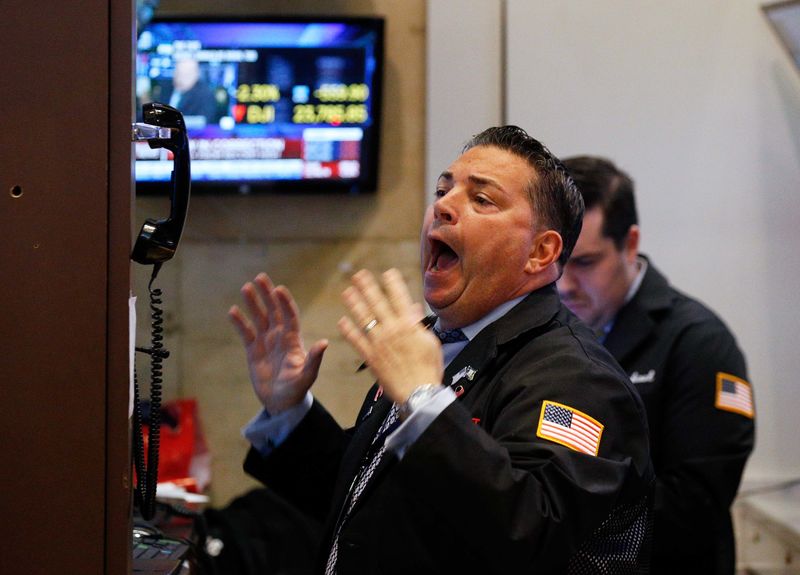By Lewis Krauskopf
(Reuters) - U.S. stocks fell in volatile trading on Tuesday, as a pullback from record highs steepened following the biggest one-day declines for the S&P 500 and Dow in more than six years.
Major indexes swung up and down after starting the session 2 percent lower, underscoring a return of volatility to a market that until recently had been known for the absence of such major shifts.
The sharp declines in recent days marked a pullback long-awaited by investors after the market minted record high after record high in a relatively calm ascent.
“Put your seatbelts on. It’s going to be a volatile ride for the next several trading sessions," said Chad Morganlander, portfolio manager at Washington Crossing Advisors in Florham Park, New Jersey.
“Fundamentals are moving forward in a positive way, which gives us confidence that in the long run you’ll continue to see higher highs within the markets."
The Dow Jones Industrial Average fell 34.37 points, or 0.14 percent, to 24,311.38, the S&P 500 lost 7.95 points, or 0.30 percent, to 2,640.99 and the Nasdaq Composite dropped 17.12 points, or 0.25 percent, to 6,950.41.
The market's pullback comes amid concerns about rising bond yields and higher inflation. These were reinforced by Friday's January U.S. jobs report that prompted worries the Federal Reserve will raise rates at a faster pace than expected this year.
"You continue to have investors re-rating stocks based on higher inflation and higher interest rate expectations," said Michael Arone, chief investment strategist at State Street Global Advisors in Boston.
Tuesday brought another day of volatility a day after a steep selloff that brought the biggest percentage daily declines for the S&P 500 and the Dow since August 2011 and a near 1,600 point intraday loss for the Dow.
At its session low on Tuesday, the S&P had declined 9.7 percent from its Jan 26 record high. At its lowest point on Tuesday, the Dow was off 10.7 percent from its Jan 26 record.
Market experts said the selloff, including the overnight slide in S&P 500 futures, may have been magnified by the violent unwind of a trade betting on volatility in U.S. stocks staying low as the CBOE Volatility index, known as the VIX, notched its biggest one-day jump on Monday in over two years.
"If this is just the implosion of shorting volatility, it's not the end of the bull market," said Michael Antonelli, managing director of institutional sales trading at Robert W. Baird in Milwaukee.

"People will be afraid now of shorting volatility. It'll change the complexion of the market. It takes away what many considered to be easy money."